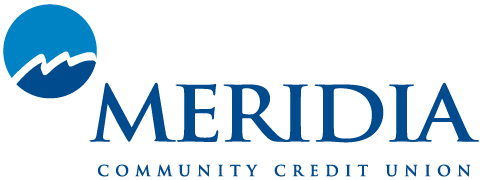The Credit Union Difference
Experience “people helping people.”
What’s a Credit Union?
A credit union is a cooperative, not-for-profit financial institution organized to promote thrift and provide credit to members. It is member-owned and controlled through a board of directors elected by the membership. The board serves on a volunteer basis to establishes policies. As a result, members are provided with a safe, convenient place to save and borrow at reasonable rates. Credit unions exist for the sole purpose of helping their members financially, not to make a profit.
A credit union is a group of people helping each other achieve financial success. Credit unions help members of ordinary means save and borrow money at extraordinary rates. Credit unions can charge lower rates for loans as well as pay higher dividends on savings because they are nonprofit cooperatives. Rather than paying profits to stockholders, credit unions return earnings to members in the form of dividends and improved services. Plus, as a member, you are an owner of the credit union, which means you have a say in how it’s run.
Benefits
- Save Money with Fewer and Smaller Fees
- We are members of your community, so we understand what our members need and want
- Enjoy Superior Service
- Earn More with Higher Savings Rates
- Borrow at Lower Rates
Additional Information
Who Owns a Credit Union?
You do. Most financial institutions are owned by stockholders, who own a part of the institution and intend on making money from their investment. Conversely, a credit union is owned by its members. Each member owns one “share” of the organization. Members use the credit union’s services and are entitled to vote on important issues, like electing the board of directors.
How Did Credit Unions Start?
The first credit union cooperatives started in Germany over a century ago. Today, credit unions are found everywhere in the world. In the United States, the credit union movement started in Manchester, New Hampshire. There, the St. Mary’s Cooperative Credit Association, a church-affiliated credit union, opened its doors in 1909. More credit unions soon followed. The results of these first credit unions were so positive that President Franklin D. Roosevelt signed the Federal Credit Union Act into law in 1934 to “promote thrift and thwart usury.” Today, one in every three Americans is a member of a credit union.
The Credit Union Difference
We get it, many people don’t really know what a credit union is. If they do, they think only people who work for certain employers can open an account. Let us help you with what you need to know, and how you can take advantage of all the benefits a credit union has offer.
At Meridia Community Credit Union, our mission is to take what we do well and go far beyond the expectation. Whether it’s offering progressive products, staying open a little longer, or simply taking time to truly listen, we always go beyond what is expected.
Why choose a credit union over a bank?
If you ask someone to describe a credit union, they usually say it’s a place to start a savings account. While that’s true, Meridia ha so much more than savings to offer. We are a full service financial institution and honestly, we have implemented some great technology many large banks don’t even use! So, if a credit union and a bank offer similar products and services, why choose a credit union? It all comes down to you. We do what’s right for our members, not what’s right for stockholders who are looking to make a profit.
We offer everything you need for financial success–savings, checking, loans and all the extras to make our products and services go beyond your expectations. We don’t just meet your basic needs, we will help get you to a better place financially.
Fees
No fees to join Meridia CU. Just a $5 deposit to open an account and experience the credit union difference.
Why Meridia?
Meridia has been around since 1955 and we have a solid reputation that reflects the credit union philosophy of people helping people. A credit union is a cooperative, not-for-profit financial institution owned by its members and controlled through a volunteer board of directors elected by the membership. The result? Members are provided a safe, convenient place to save and borrow at reasonable rates at an institution which exists to benefits its members! Learn more

